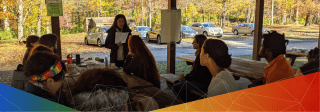
Communication Neuroscience Lab
News

News
Youth Voter Turnout: Annenberg Expert Unpacks the Issue
Voting in an election helps shape the government to work on their behalf. However, the majority of U.S. youth don’t vote regularly.




